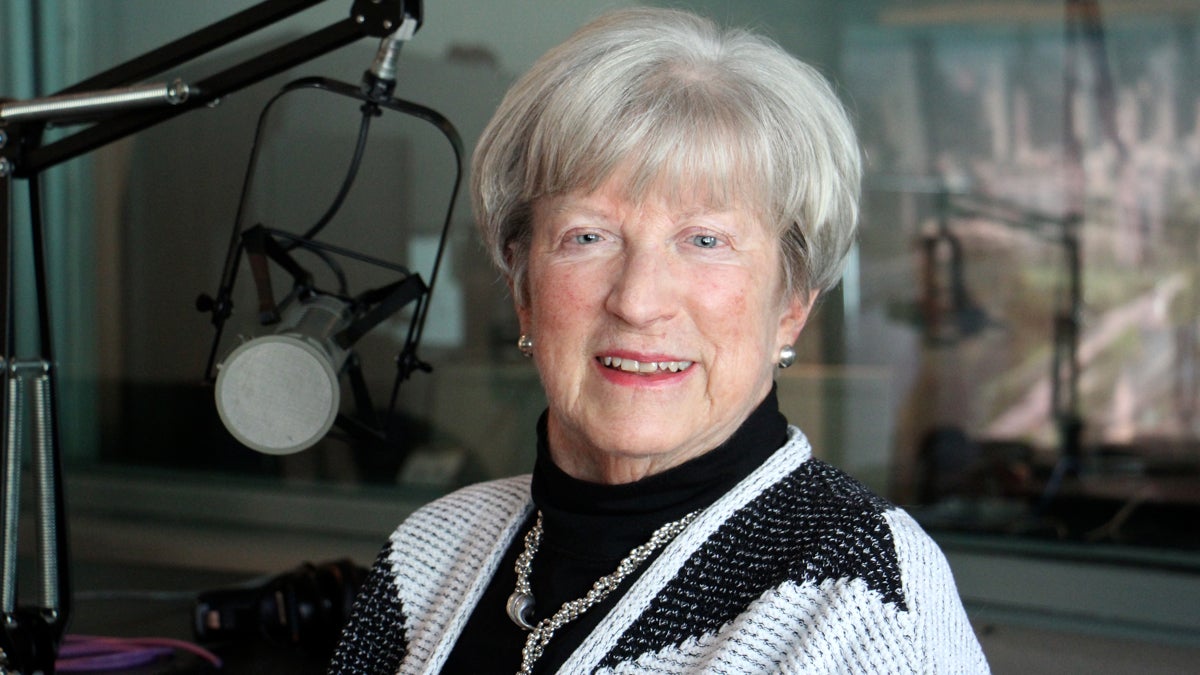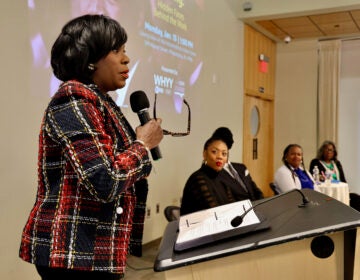Recalling 1992’s ‘Year of the Woman,’ Lynn Yeakel assesses gender equality in 2018
Thursday is 50/50 Day, a global day of action and conversations around gender equality in leadership.
Listen 4:53
Lynn Yeakel, who nearly defeated U.S. Sen. Arlen Specter in 1992, says she’s in no position to judge the merits of the Kavanaugh case, but she wishes it would be considered in a thorough, nonpartisan process. (Emma Lee/WHYY)
With hundreds of women campaigning for Congress or other elected office following President Donald Trump’s victory, 2018 has been called the “Year of the Woman.”
But 1992 was also dubbed the “Year of the Woman.”
That’s when Lynn Yeakel lost her U.S. Senate bid in Pennsylvania after nearly unseating incumbent Arlen Specter. Since then, her work on women’s issues led her to direct the Institute for Women’s Health and Leadership at Drexel University’s College of Medicine.
WHYY’s Morning Edition Host Jennifer Lynn spoke with her this week in anticipation of Thursday’s 50/50 Day, a global day of action and conversations around gender equality in leadership.
Listen to the conversation by clicking the play button above or read a lightly edited transcript below.
Lynn began by asking Yeakel what evidence she’s seen of women being more engaged and energized to demand real change in Pennsylvania.
—
The most exciting evidence is all the women who have filed to run for office this year. I was told there are 68 women who have filed to run at the state level and there are many, many women running for Congress in the newly configured congressional districts. In some cases, there are several women running in the same primary and I think that shows that women are ready really to step up and take leadership to try to change things that need changing.
Do you have the inside skinny on the recruitment of these women? Who is asking these women to come forward? Are they coming forward because they want to anyway?
Well, I think there are two things. First of all, there are some really excellent organizations out there now that are providing training for women, proving all kinds of help connecting them to each other. And some of the women who are already in elected office are really helping other women which is great. I think the main thing is that all of sudden women have decided to, and I’m going to use a quote from 1992, “to get up off the couch.” Somebody else isn’t going to do this, that we need to do it ourselves.
The year of women in politics as we’re talking about comes well after your own run for U.S. Senate in Pennsylvania. That was supposed to be the year of the woman.
Now, that was 26 years ago, amazingly, 1992. And the reason that was called the year of the woman in politics is that there were a record number of women at that time who were running. I mean, I was running for the U.S. Senate and at that time, there were only two women in the U.S. Senate and that was the most it had ever been. Today, there are 23 women in the U.S. Senate, but the fact was that there were a lot of women that year who decided it was time to take action themselves and that was my motivation.
Lynn, what’s become effective in drawing attention to and changing policy on issues that matter most to women from sexual harassment in the work place to paid leave or any other number of issues?
There are few things. First of all, it’s the number of women who have come forward publicly certainly and when several women step up, then others feel the confidence to join them, but it’s also the knowledge that we’re not alone, whether it’s in whatever circumstance that there are other women who feel the same way. And that together, we might be able to get somethings done.
Well, we can go to D.C. right now and see that there are some things that are changing. Maybe it’s a minor change, maybe it’s a major victory that women can now have their infants on the floor. That’s a very big change.
I love that change, and I’ll tell you how significant it is in terms of progress. Back in 1992, when I was running for the U.S. Senate, Senator Barbara Mikulski — one of the only two women in the U.S. Senate — told me there was not even a women’s restroom there. So now, we’ve gone from solving that problem to being able to bring an infant on the floor of the U.S. Senate. I think it’s fabulous, and I think it also symbolizes women’s multiple roles in life and the importance of being able to recognize those roles and to make it possible for women to lead.
WHYY is your source for fact-based, in-depth journalism and information. As a nonprofit organization, we rely on financial support from readers like you. Please give today.





